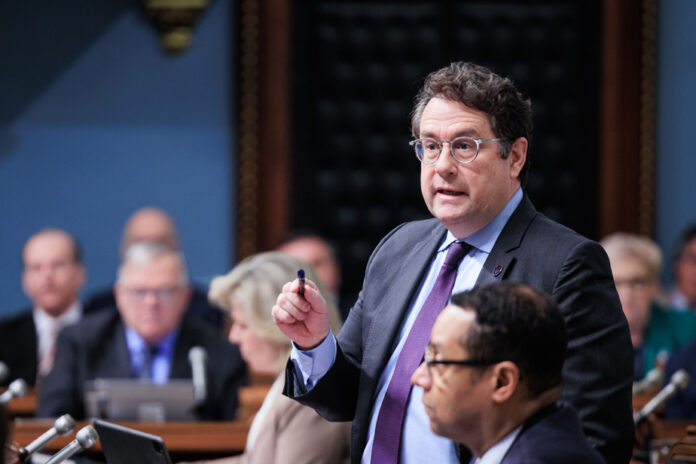I agree with Mr. Drainville. In Quebec, religion, whatever it is, is in the private domain and must remain so. So pray in places of worship, at home, in parks, but not at school. These unreasonable accommodations will lead us to the discrimination of many groups of citizens, starting with women.
Religion does not need ostentatious gestures, it is lived above all in the head and the heart. Let’s not be naive: all over the world, Islam is proselytizing…
In my opinion, a quest for spirituality is part of human nature. Whether our beliefs are religious, scientific or atheistic, they are natural and necessary. I am for a place of meditation, whether for meditation, prayer or reflection. Open to all when space permits. The religious particularity of Muslims, which I know a little about, separates the prayer of men and women. This poses a logistical challenge but not impossible to overcome. So I am in favor of accommodation.
Being a former believer raised as a Catholic, I think of what my mother used to tell me when I was little in school. She assured me that I could pray anywhere, anytime and even in secret. No need to have a specific location.
Prayer and any religious practice have no place in Quebec public schools, which have been non-denominational since the adoption of Law 118 on June 16, 2000. Religions have always been a source of division and conflict. . More than ever, public schools must ensure religious neutrality in order to be the foundation of the constitution of Quebec culture shared and adopted by future adult citizens of Quebec, regardless of their ethnic origin, their beliefs or their moral or nuns. And this principle of the religious neutrality of schools, which the non-denominational status of public schools requires, should apply to private schools that receive financial assistance from the Quebec state.
Mr. Drainville is absolutely right: praying is a basic right, but I don’t want anyone praying in public, it’s indisposing. People who feel the need to pray can do so at home or in places of worship.
At one time, we spent the first half of the morning studying the catechism and sacred history. It was necessary to pray when arriving in the morning, to recite the Rosary when returning after dinner, to go to confession on the first Thursday of the month and to mass once a week. All that time is over and it’s for the best. In my opinion, it would be better to teach philosophy and leave all religion at home and in the church, mosque or other temple. I agree with the government’s decision. Moreover, the ideal place of calm and contemplation at school should be the library. If there has.
Mr. Drainville mixes everything up and does not understand the principle of reasonable accommodation. A room of meditation comes to satisfy the need and avoids situations which endanger the young people (eg: praying in stairwells). The code of conduct is the responsibility of the governing board and is governed by law. The minister interferes in the responsibilities of the school and its management. It creates division and does not tackle the real issues, including the existence of private religious schools subsidized by the state.
Totally agree with the Minister. I am against variable secularism. The school should remain a learning environment. Mosques and churches exist for religious practices. Above all, do not convert classrooms into places of prayer when there is a lack of space to accommodate new students!
But of course yes, secularism and place of prayer are mutually exclusive. There is no compromise to be made. Prayer, whether Catholic, Jewish, Muslim, happens elsewhere. outside the secular school. We’re not going to go back to “reasonable accommodation” or curtains in the windows, it’s ridiculous. Prevent female teachers who wear the hijab from teaching, but open rooms for prayer? Plus, Muslim students get kicked out by their male co-religionists? The debate is long over.
I really don’t see a problem. Who really minds? The secular state should not interfere with religious practice. But if students want to practice their religion outside of school hours, in an available room, who cares? Perhaps it will be necessary that the leaders of the group ensure a certain monitoring, a certain framing. They will have to make sure themselves that the practice is safe. Some practices may be excluded, such as separating boys from girls. But it is an additional service for parents who want their children to practice a religion. There’s nothing wrong with that!
Kudos to Minister Drainville. He is absolutely right. Let those who want to pray do so in the religious temples designed for that purpose and not at school, where the students are there to study.


















